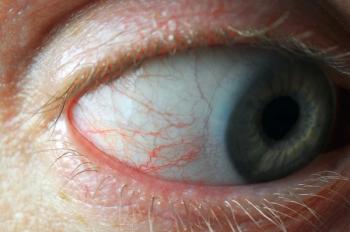
Unravel the disconnect of online contact lens sales
There is a daily battle between online contact lens companies and the eyecare professionals who put their time and effort into providing patients with contact lenses. Ms. Hagemeyer explains the disconnect between ODs and online contact lens sales.
Almost daily there is a battle between the impersonal online contact lens companies and the eyecare professionals who put their time and energy into providing patients with contact lenses that have the most precise fit and comfort.
Patients and trust
For most professionals, we understand that our care begins during our patient’s first appointment. Our intention is always to improve our patients’ lives by providing them with the most up-to-date comprehensive eye care with an assumption we will have the opportunity to finish their eye care by providing the contact lenses prescribed.
It is a belief because our patients have made a conscious decision to come to us for their eye care. It begins the moment that decision is made and continues as trust is built between prescribers and patients.
It comes as no surprise then that we would feel rejection and lack of trust when our ability to provide products that would help us complete our patient’s eye care is taken out of our hands.
Related:
It seems odd when a patient is surprised by our lack of enthusiasm as we hand over her contact lens prescription. How can she not be aware of the way eyecare professionals view a contact lens prescription going out the door following the measurements and time needed for contact lens fittings. Perhaps she doesn’t understand the education that is required, or perhaps she assumes contact lens fittings are performed randomly-we just guess at the best lens or even choose the most expensive lenses available.
Some blogs, such as coyoteblog.com, suggest that prescribing physicians try to charge patients as much as we can. Such websites attempt to reinforce assumptions by patients that lost revenue is eyecare professionals’ driving force to prescribe and dispense contact lenses.
Loss of care
When patients opt to purchase their contact lenses elsewhere, it is lost revenue for sure. However, the well-trained team will understand that the loss is more than a monetary loss.
We lose the ability to provide the contact lenses we have prescribed, taking away our ability to monitor the effectiveness of the recommended contact lenses for our patients going forward. We are acutely aware that patients may potentially wear contact lenses that have not been prescribed for 12 months or longer.
What patients don’t know
We understand contact lenses are medical devices and should never be worn without medical supervision. There are cases of contact lenses sold without prescriptions, and have caused terrible eye infections, permanent vision damage, and in some cases blindness. Both eyecare practitioners and staff have difficulty understanding why anyone would want to risk her vision for a few dollars.
Not everyone recognizes that contact lenses do not fit perfectly by accident. Fittings often require multiple visits with diagnostic and sophisticated testing, and sometimes several trials of different types of contact lenses are necessary.
It is difficult for eyecare providers and staff to be aware of every online competitor; there are too many, and not all will play fair. Some will advertise considerably lower prices for the identical brands of contact lenses we offer; others are sold as “the same as,” but the products are sold for unreasonably low prices and are frequently not the same. Swapped-out materials or brands are not the contact lenses our office prescribed for the patient.
Contact lenses manufactured and sold outside the United States are not required to be approved by the U.S. Food and Drug Administration (FDA). They are sold online to unsuspecting individuals who don’t realize the contact lenses they have purchased may be knock-offs, expired re-used, rejected, or contaminated.
Some websites, such as visiondirect.uk, lenstore.co.uk, and saveonlenses.com, promote purchasing contact lenses without a prescription. They encourage individuals to input numbers from their glasses prescriptions without any contact lens information provided by a doctor. Some sites have a process that “works around” an expired prescription!
Related:
Not all online contact lens companies are unscrupulous. Most follow regulations about filling contact lens prescriptions. They want what we want: safe contact lens wear without complications. These online retailers require a current contact lens prescription, however, unfortunately most require our patients to enter the contact lens specification information themselves. Patients providing their own contact lens parameters is an additional chance for transposition of numbers, or simply wrong information being entered.
Keeping patients in the practice
Eyecare practitioners are discovering new and innovative ways to improve efficiency and utilize cost-effective contact lens ordering methods that will help to keep patients in the practice and allow staff to better monitor their compliance.
Subscription services are becoming common in our busy culture-ordering and receiving almost anything directly (groceries, daily meals) saves time, albeit not always money. Following this trend, contact lens subscription services are also becoming more common. Companies offering this service have realized the importance of cost effectiveness and convenience.
Working in conjunction with prescribing physicians, subscription companies such as The Lens Butler encourage compliance by ensuring that patients receive boxes of new lenses on a regular schedule; no need to over wear lenses if you have more on hand. (Of course, this is why eyecare providers encourage patients to purchase an annual supply of contact lenses.) Prescribing physicians entering the contact lens specifications will help reduce the chance for patients to receive the wrong contact lenses.
Offering patients ordering options for their contact lenses is two-fold-providing a sense of control for our patients, and the confidence that we are recommending the most current, and convenient method of receiving their eye care products.
Currently eyecare practitioners are required by law to provide patients with their contact lens prescriptions; it is not by choice that we give patients the ability to order any brand or type of contact lens. It is incumbent upon all eyecare practitioners and staff to continue to educate every contact lens patient on the importance of compliance and wearing only the contact lenses prescribed. Don’t hold back; show images of dramatic consequences of noncompliance. Help patients understand ordering contact lenses online can come with real risks, and that is our concern. It is important our patients’ understand our main goal is to provide contact lenses that provide a great fit, the best visual acuity, comfort, convenience, and a match their lifestyles.
Remember that we have what contact lens online services will never have: the exclusive ability to build trust through face-to-face interaction with our patients. Keep in mind that there will be patients who place a higher value on their pocketbook than their ocular health. It is important to provide those patients the knowledge that we will continue to provide the best eye care and will continue to be there to care for their eye health should any complications arise regardless of where they purchase their contact lenses.
Newsletter
Want more insights like this? Subscribe to Optometry Times and get clinical pearls and practice tips delivered straight to your inbox.















































